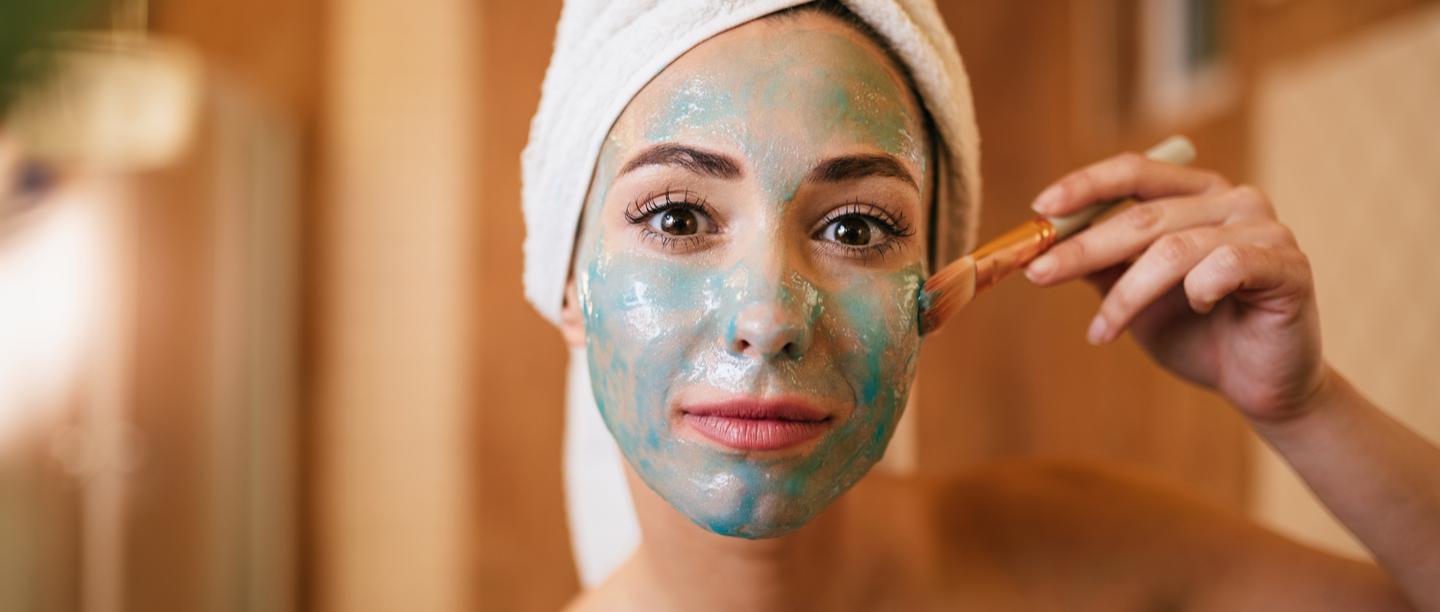There is plenty of tension in the world right now and different people have different ways of handling their stress. Some folks meditate, some listen to soothing music, some prefer taking a long, warm bath – whatever comforts them. Beauty mavens, on the other hand, have a slightly different approach to unwinding. Spoiling one’s skin is trending at the moment. DIY beauty recipes are flooded on the ‘Gram and every one of these ladies considers face masks to be the ultimate form of relaxing. Can’t blame them. Ads and magazines promoting women wearing face packs, with a glass of wine in one hand and fancy magazine in the other, have been glamorised to the tea!
While face masks really do feel soothing when applied to your skin, how much is too much? It honestly depends on how many times you use a face mask. If you’re using it every other day, you’re kinda asking for trouble.
5 Things That Happen To Your Skin If You Over-Mask
You know what they say, right? Too much of anything is bad.
1. Hello Breakouts, My Old Friends!
Before you use any new face pack, always do a patch test first. If the ingredients in the products don’t work for your skin, they can destroy the skin’s barrier. Once the skin’s barrier is disrupted, be prepared to experience nasty rashes, burns and breakouts. If your skin does decide to act out in the first 1 minute of application, wash it off. Also, identify the purpose of the mask. Is it designed to just hydrate your skin or does it help to treat acne-prone skin? If it’s the latter then invest in face masks that have the ‘noncomedogenic’ labelled on them.
2. They Hurt Your Skin

Shutterstock
Peel-off masks are fun to use and remove, but using them every alternate day can actually damage your skin. Along with pulling out debris and gunk, peel-off masks also remove and kill healthy skin cells. Don’t overdo it. Once in 2-3 weeks should be more than enough.
3. They Make Your Skin Tight
I’m talking about clay masks here. Clay masks have never worked for me and I always suffer from breakouts whenever I use one. While clay masks are fantastic for acne-prone and oily skin, they aren’t that great if you have dry, sensitive skin. If you have this skin type and still use clay face masks, your skin will look clean no doubt, but your skin will feel tight and dry. If you do love a good clay mask, be generous with moisturiser after!
4. They Cause Hives

Shutterstock
If you thought pimples were bad, wait till you experience hives! Hives make your skin swell up and become red and itchy. If you do experience hives, you could be allergic to some of the ingredients in the pack. Avoid using this pack in the future – even if you spent a fortune on it.
5. They Strip The Skin Of Its Oils
Your skin needs to have oil and good bacteria on its surface to carry out its healthy functions. If you over-mask, the product can actually strip the skin of its oils and as a result, your pores might try to overcompensate by producing more oil. And that can cause redness and acne and an imbalance in your pH levels.
So How Many Times A Week Should You Be Masking?
There’s no perfect number, it entirely varies from person to person. You have to pay attention and understand what your skin needs.
If you have oily skin, you can use a clay mask or a clarifying mask once a week.
If you have dry skin, hydrating masks or sheet masks are your best friend. Once a week is good enough.
If you have sensitive skin, depending on your skin concern, masking once in 15 days should do the trick.
No matter how relaxing face masks make your face feel, you shouldn’t over-mask. Also, make sure that you’re moisturising your skin after your masking sesh to prevent dryness and breakouts from popping up.
Featured Image: Shutterstock



